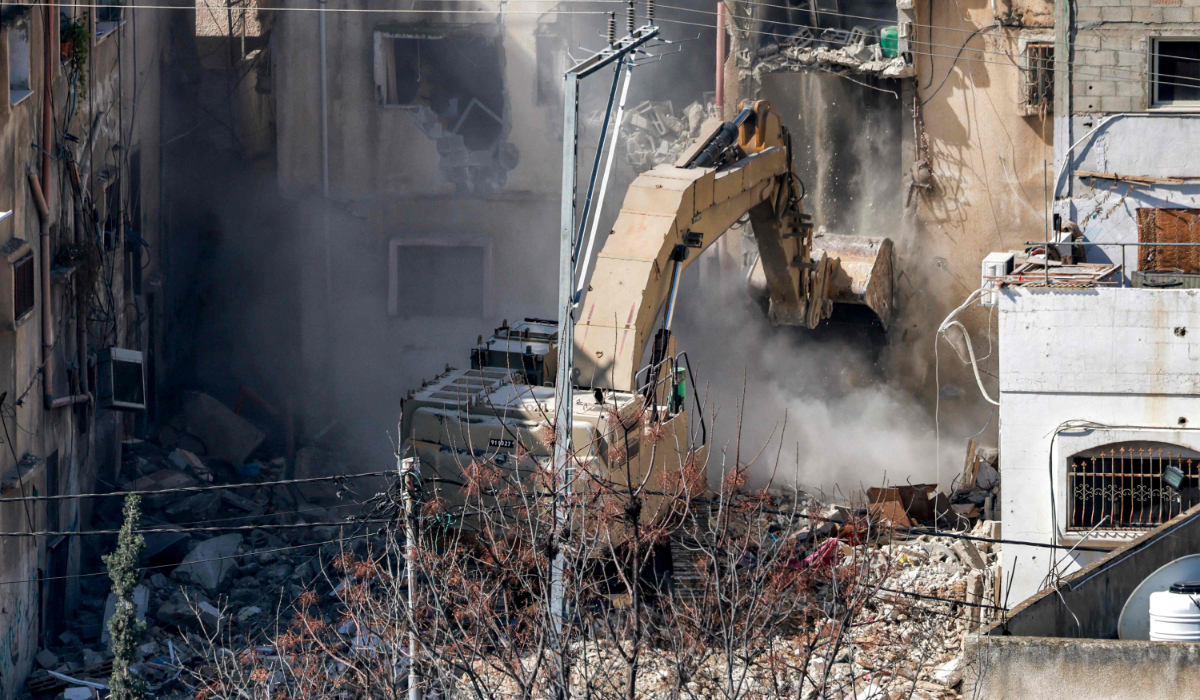JERUSALEM: With an intensive Israeli military operation in Gaza’s besieged north in its 50th day, remaining residents are left “scavenging among the rubble” for food, said UNRWA spokeswoman Louise Wateridge.
The Israeli army announced it would intensify operations in the ravaged north of the territory on Oct. 6, with troops encircling the northern city of Jabalia and adjacent areas at the time.
Speaking from Gaza City, where many of the north’s residents have fled since the operation began, Wateridge gave insights gleaned from talking to displaced Palestinians and colleagues from the UN agency for Palestinian refugees.
She said UNRWA estimates that between 100,000 and 130,000 people have fled north Gaza since the beginning of the operation, which Israel said aims to keep militants from regrouping in the area.
“There is no access to food, no access to drinking water. Eight of the UNRWA water wells in Jabalia stopped functioning weeks ago. They’ve been damaged and destroyed. They’ve run out of fuel.
“There were very horrific reports of continued strikes on hospitals, on shelters where people are.
“Here in Gaza City, I’m meeting people who have fled for their lives, and they’re showing me these appalling videos where they’re running through the streets, they’re navigating, you know, the rubble.
“There are bodies of children around them. There are bodies of people who have been killed everywhere that they have to walk and step over
to get out.
“Fifty days of siege, it’s unfathomable, the destruction, the death, the pain, the suffering that that will cause.
“I met some children just in the last few days; you can hear the planes going over, you can hear the drones, and they freeze, they completely freeze, they don’t have anything to say, their teeth start chattering, they’re absolutely paralyzed by fear from these experiences that they’ve had over the last few weeks.”
“(There are) around 65,000 people in these besieged areas. We hear that they are scavenging from residential buildings, scavenging among the rubble, trying to find any old tins of canned food, any kind of source of food already in these residential buildings or among the rubble.”
“It was around this time last year that there were reports from northern Gaza that was cut off, and people were going around. Our colleagues were going around eating animal food to stay alive. So, people are just eating anything that they can find at this point, and it really is complete survival.
“Hearing these stories of people’s families under the rubble and fleeing and having to leave them behind, people are traumatized, people who haven’t managed to escape, they’re absolutely traumatized.”
“(There are) around 100,000 to 130,000 more people forcibly displaced from Jabalia, Beit Hanoun, and these besieged areas. And... they’re arriving (in Gaza City) to charcoal buildings, blown out buildings, it’s raining, cold, and freezing.
“They don’t have mattresses, they don’t have tarps, they don’t have tents, they don’t have blankets, families are crying, begging because their children don’t have clothes, they don’t have warm clothes, babies don’t have anything to keep them warm.
“It’s beyond appalling, the conditions people are forced to live in here. So they’re among the rubble in these facilities that should be protected by international law.
“Horrific stories of tanks arriving, of strikes on the schools, and then people being forced to go back and shelter there because they simply don’t have anywhere else to go.”























